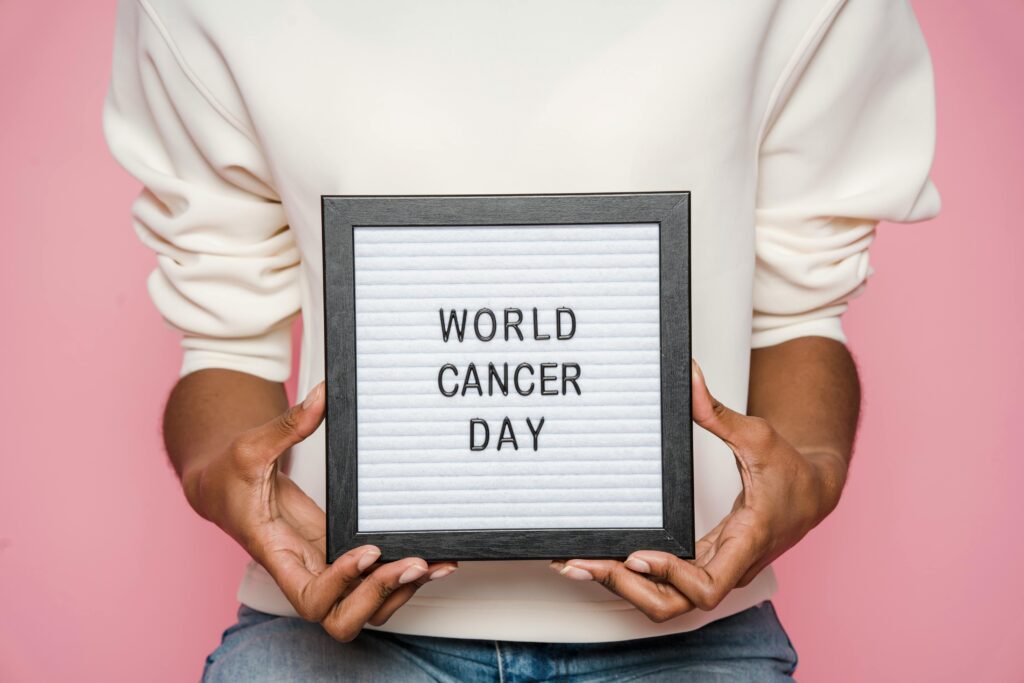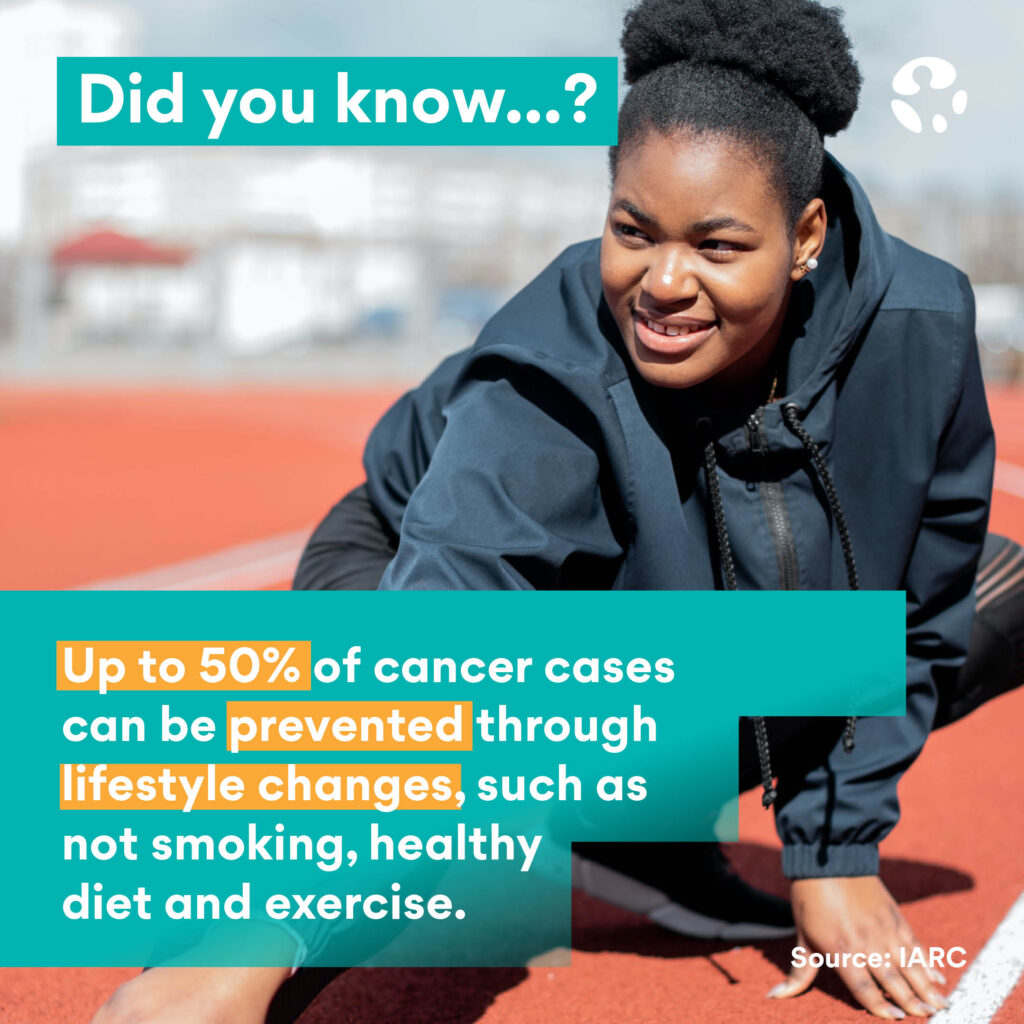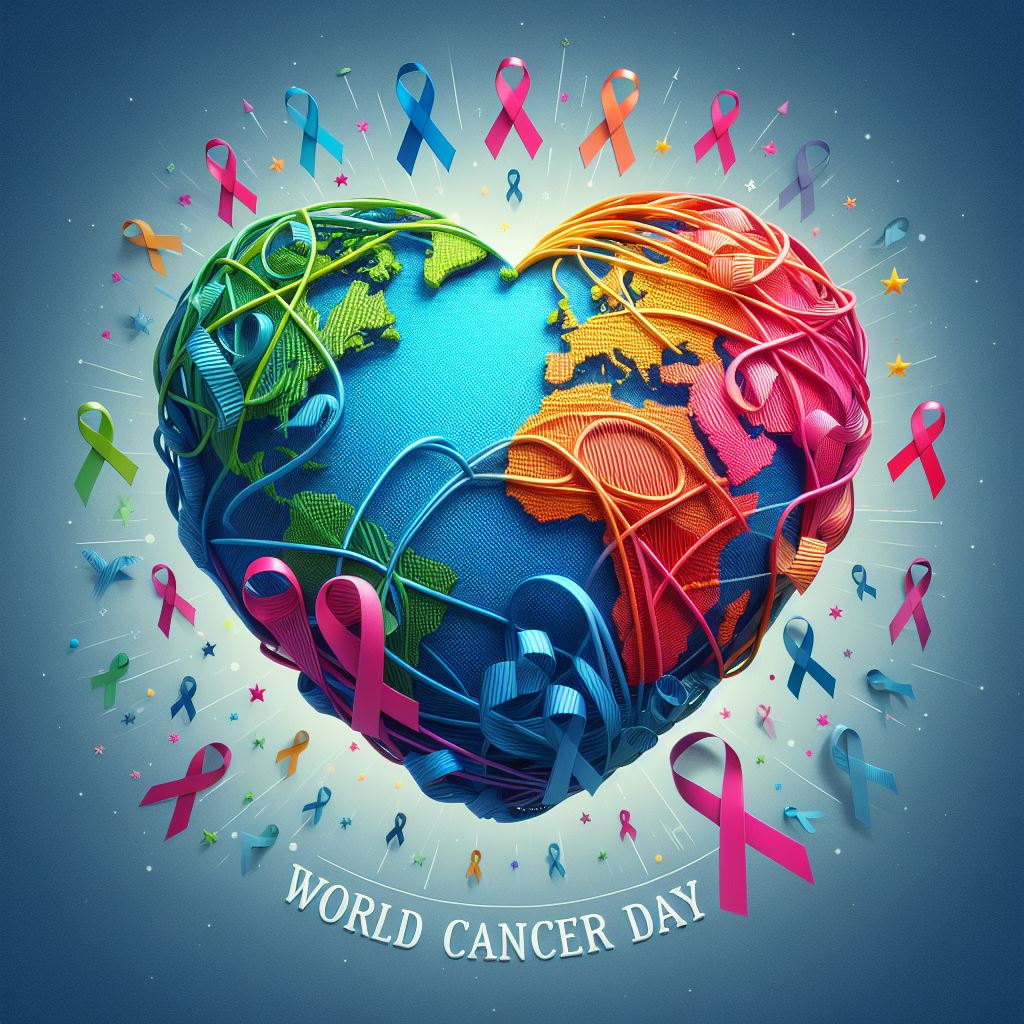Table of Contents
Introduction
Significance of World Cancer Day
World Cancer Day is observed annually on February 4th. It is a powerful initiative to unite the global population in the fight against cancer. As a matter of fact, it is crucial as it raises awareness, promotes research, and encourages preventive measures. Markedly, this day serves as a reminder of the impact of cancer worldwide. Moreover, it includes millions of affected people irrespective of geography, age, or socioeconomic status. In addition, the day highlights the importance of early detection, treatment, and palliative care. Above all, World Cancer Day aims to reduce illness and death caused by cancer and to remove barriers to access. Moreover, this includes low-to-middle-income countries where healthcare disparities are most acute.

World Cancer Day 2024 Theme: Closing the Care Gap
The theme for World Cancer Day 2024, “Closing the Care Gap,” is particularly poignant. Primarily, it focuses on addressing the inequalities in cancer care access and delivery. Furthermore, this theme underscores the necessity of equitable access to comprehensive cancer care services. These ranges from prevention and early detection to treatment and palliative care. Overall, it recognizes the existing disparities and the pressing need to bridge these gaps. Moreover, it ensures that everyone, regardless of their background, has an opportunity to fight cancer effectively. In addition, the day advocates for inclusive policies, increased funding for healthcare infrastructure, and community engagement. Markedly, the 2024 theme aims to catalyze change toward more equitable cancer care systems globally.

World Cancer Day Activities and Participation
How to Participate in World Cancer Day
World Cancer Day offers numerous opportunities for individuals and organizations to contribute to the global fight against cancer. Participation can range from engaging in social media campaigns using specific hashtags like #WorldCancerDay to increase awareness. This further extends to attending or organizing educational workshops that discuss cancer prevention, early detection, and care. Community events, such as charity runs, health fairs, and fundraising dinners, also play a significant role in uniting people for this Cause resultantly. For those unable to attend in-person events, many organizations offer online platforms. Wherein, you can pledge support or share personal stories to inspire others.
Virtual World Cancer Day Events: Bridging the Distance
Virtual events have become increasingly important, especially concerning global challenges like the COVID-19 pandemic. These events ensure that the momentum of World Cancer Day is maintained. Moreover, this allows individuals from all over the world to participate without geographical barriers. Virtual conferences, webinars, and live-streamed panel discussions are ways to engage, learn, and contribute to the conversation about cancer. Subsequently, these digital platforms also enable a broader reach. Accordingly, it ensures that messages of hope, resilience, and solidarity in the fight against cancer are shared far and wide.
Volunteering for Cancer Organizations: Making a Difference
Volunteering for cancer organizations is a profoundly impactful way to contribute to the Cause. Volunteers can offer support in various roles. These range from assisting at local events to providing administrative support or engaging in patient support programs. Many organizations also look for volunteers with specialized skills, such as marketing, fundraising, or healthcare expertise. By donating your time and talents, you help these organizations extend their reach and impact. Subsequently, supporting patients and research efforts to find a cure.
Donating to World Cancer Day: Contributing to the Cause
Donations to World Cancer Day and related cancer research organizations are crucial in advancing the global fight against cancer. Financial contributions support many needs. These extend from funding critical research projects to providing care and support services for patients and their families. When donating, choosing reputable organizations where funds are used efficiently and transparently is essential. Many organizations offer various ways to donate, including one-time, monthly, or legacy gifts. Furthermore, these ensure that options are suitable for everyone’s capacity to give.
By participating in World Cancer Day through any of these channels, individuals and organizations can significantly impact the global effort to combat cancer. Whether through education, financial support, or volunteerism, every action contributes to a more significant movement toward a world where cancer no longer substantially threatens global health.
Reflecting on the Past and Present
World Cancer Day History: Two Decades of Global Solidarity
World Cancer Day was established in 2000 by the Union for International Cancer Control (UICC) to support the goals of the World Cancer Declaration. It aims to reduce illness and death caused by cancer by 2020 significantly. Over two decades, it has become a global movement that unites people worldwide in the fight against cancer. Key milestones include the adoption of the World Cancer Declaration in 2006. These also encompass the focus on creating a tobacco-free world, and the continuous effort to promote cancer research, prevention, and treatment. Moreover, the initiative has garnered widespread support from governments, non-profit organizations, and communities, leading to significant cancer awareness and advocacy advancements.
World Cancer Day Statistics: A Look at the Numbers
To gain a better understanding of the global impact of cancer, it is crucial to examine the statistics. According to the latest reports:
- Global Incidence: Nearly 20 million new cancer cases are estimated to have occurred in 2020 worldwide.
- Survival Rates: There has been a significant improvement in survival rates for certain types of cancer. Such as breast, prostate, and colorectal cancers, primarily due to advancements in early detection and treatment methods. However, survival rates vary widely by country and type of cancer.
- Prevention and Treatment: Approximately 30-50% of cancers can be prevented by avoiding risk factors and implementing evidence-based prevention strategies. The effectiveness of treatment strategies, including targeted therapy and immunotherapy, has also improved, contributing to increased survival rates.
World Cancer Day 2024 Theme: Closing the Care Gap
The theme for World Cancer Day 2024, “Closing the Care Gap,” emphasizes the critical need to address inequalities in cancer care access and delivery. This initiative calls for a collective effort from governments, healthcare providers, the private sector, and communities to ensure that everyone, regardless of location, income, or background, has access to quality cancer prevention, diagnosis, treatment, and palliative care services. Efforts include:
- Enhancing healthcare infrastructure.
- Promoting education and awareness.
- Implementing policies to reduce the financial burden of cancer care on individuals and families.
The goal is to create a more equitable healthcare system where socioeconomic factors do not determine outcomes.
Awareness and Prevention
Early Detection of Cancer: Paving the Way for Successful Treatment
The significance of early detection in the battle against cancer cannot be overstated. It is well-documented that identifying cancer at an early stage significantly enhances the effectiveness of treatment, leading to higher survival rates. Screening methods such as mammograms for breast cancer, Pap tests for cervical cancer, and colonoscopies for colorectal cancer are instrumental in detecting cancer early. Public health campaigns and educational programs are crucial in informing the public about these available screening methods. Encouraging regular check-ups and awareness of early symptoms can pave the way for successful treatment. It can often result in a complete cure.
Navigating the myriad of cancer screening guidelines can be challenging, yet it’s essential for early detection and prevention. These guidelines vary by type of cancer and are based on age, gender, and individual risk factors, including family history and lifestyle. For instance, breast cancer screening recommendations may suggest mammograms every two years for women aged 50 to 74. In contrast, colorectal cancer screening might start at age 45 for both men and women. Personalizing screening schedules to align with individual risk factors is crucial for effective detection and prevention, highlighting the importance of consulting healthcare providers for tailored advice.
Healthy Lifestyle Choices for Cancer Prevention: More Than Just Advice
The link between lifestyle choices and the risk of developing cancer is undeniable. A healthy lifestyle that includes a balanced diet rich in fruits and vegetables, regular physical activity, minimal alcohol consumption, and avoidance of tobacco can significantly reduce the risk of cancer. Public health initiatives often emphasize these choices as advice, and as actionable steps, individuals can take to lower their cancer risk. Adopting such lifestyle changes can be challenging, but the benefits of cancer prevention and overall health are substantial. Community support programs and educational resources can assist individuals in making these positive changes more manageable.

Myths and Facts About Cancer: Dispelling Misconceptions
Misconceptions about cancer can hinder prevention, early detection, and treatment efforts. Common myths such as “cancer is always hereditary” or “cancer treatment is more harmful than the disease itself” can create unnecessary fear and stigma. It’s crucial to counter these myths with accurate information, emphasizing that lifestyle changes can prevent many cancers and that early detection dramatically improves treatment outcomes. Education plays a vital role in dispelling these misconceptions, with healthcare professionals, cancer organizations, and media outlets working together to provide reliable information and support to the public.
Access and Disparity in Cancer Care
A Global Challenge: Access to Cancer Care
Access to quality cancer care remains one of the most significant global health challenges, characterized by stark disparities between and within countries. Factors contributing to these disparities include socioeconomic status, geographical location, lack of awareness, and insufficient healthcare infrastructure. These disparities significantly impact patient outcomes, with individuals in low- and middle-income countries facing higher cancer mortality rates due to late-stage diagnoses and limited access to treatment. Addressing these challenges requires a multifaceted approach, including improving healthcare infrastructure, enhancing awareness, and implementing policies that promote equitable access to cancer care services for all individuals, regardless of their circumstances.
Reducing the Gap in Cancer Care: A Commitment to Equity
Efforts to reduce disparities in cancer care are centered on a commitment to equity, involving initiatives, policies, and strategies to ensure all individuals have access to the care they need. This includes increasing resource allocation to underserved areas, expanding healthcare infrastructure, and engaging communities in prevention and early detection efforts. Global and local health organizations are actively working to identify and address gaps in care, promoting partnerships that leverage resources and expertise to improve cancer care delivery. These efforts are crucial for creating a more equitable healthcare landscape where everyone has a fair chance of fighting cancer.
National Cancer Centers and Global Cancer Initiatives: A Collaborative Approach
National cancer centers and global cancer initiatives are paramount in enhancing the quality and accessibility of cancer care worldwide. These institutions and initiatives foster collaboration among countries, facilitating sharing of knowledge, resources, and best practices. They aim to strengthen healthcare systems, support research and innovation, and implement effective cancer control strategies by working together. The emphasis on collaboration reflects a recognition that the fight against cancer is a shared responsibility, requiring a united effort across borders to make meaningful progress in improving outcomes for cancer patients globally.
Support and Coping
Supporting Someone with Cancer: Compassion in Action
Supporting someone with cancer requires a blend of emotional, practical, and informational support. Compassion becomes a critical element, as it helps in understanding and addressing the fears and concerns of those diagnosed with cancer. Emotional support involves:
- Listening empathetically.
- Offering a shoulder to lean on.
- Being there for them without judgment.
Practical support can include helping with daily tasks, managing appointments, or even financial assistance. Informational support involves assisting them in understanding their condition and treatment options and navigating the healthcare system. Encouraging them to express their feelings and fears and offering reassurance that they are not alone in this journey can significantly impact their mental and emotional well-being.
Coping with Cancer Diagnosis: Strategies for Resilience
Receiving a cancer diagnosis can be a life-altering event, invoking a wide range of emotions and challenges. Strategies for resilience include:
- Seeking Information: Understanding the diagnosis can help individuals feel more in control.
- Building a Support Network: Connecting with family, friends, and cancer support groups can provide emotional solace and practical help.
- Maintaining a Routine: Keeping up with regular activities as much as possible can provide a sense of normalcy.
- Practicing Self-care: Engaging in activities that promote physical and mental well-being, such as exercise, meditation, or hobbies, can enhance resilience.
- Seeking Professional Help: Counseling or therapy can be vital in managing the emotional toll of cancer.
Cancer Caregiving: The Unsung Heroes
Caregivers play a crucial role in the cancer journey, often facing their own set of challenges while providing support. Acknowledging these challenges and offering advice and resources is vital. Caregivers should be encouraged to:
- Practice Self-care: Caregivers must maintain their health and well-being to be effective in their role.
- Seek Support: Joining caregiver support groups can provide valuable advice and emotional support.
- Set Boundaries: It’s essential to recognize limits to what they can provide and seek additional help when needed.
- Educate Themselves: Understanding the specifics of the cancer diagnosis can help provide better care and make informed decisions.
Unveiling the Strength Within: Stories of Remarkable Cancer Survivors
Cancer survivors embody resilience, courage, and hope, serving as beacons of inspiration for others navigating similar journeys. Their stories highlight their immense challenges, from diagnosis through treatment and beyond, and the remarkable ways they’ve overcome these obstacles.
Numerous authentic stories of cancer survivors echo themes of hope, strength, and perseverance. For example, the Centers for Disease Control and Prevention (CDC) feature stories of individuals like James, a colon cancer survivor; Mari, a breast cancer survivor; and Brock, a multiple myeloma survivor. Each survivor shares their unique journey through diagnosis, treatment, and beyond, offering insights into their challenges and triumphs.
Additionally, the American Cancer Society provides a platform for survivors to share their stories, highlighting the positive outlook and coping mechanisms adopted in the face of cancer. These stories inspire and support others undergoing similar challenges, reinforcing that you’re not alone in this journey.
MD Anderson Cancer Center also shares compelling patient stories from their Cancerwise blog, detailing the experiences of individuals who have participated in groundbreaking treatments and clinical trials, showcasing the advancements in cancer care and the personal victories over the disease.
These real-life accounts, found through reputable sources such as the CDC, the American Cancer Society, and MD Anderson Cancer Center, offer a window into the lives of those affected by cancer, underscoring the importance of hope, support, and advanced medical care in overcoming the obstacles posed by the disease. For more detailed survivor stories and to gain a deeper understanding of their journeys, we recommend visiting the respective websites of these organizations.
Innovation and Progress in Cancer Treatment
Cancer Research and Treatment: The Frontier of Hope
Recent cancer research and treatment advancements signal a bright future for patient care and outcomes. One of the significant areas of progress is in cancer vaccines, particularly with the development and application of personalized cancer vaccines. These vaccines are designed based on the unique genetic makeup of an individual’s tumor, offering a highly targeted treatment approach. Advancements in cancer vaccines are expected to improve outcomes for various cancer types by stimulating the immune system to target and destroy cancer cellsmore effectively.
Personalized Medicine in Cancer Care: Tailoring Treatment to the Individual
The concept of personalized medicine has taken center stage in cancer care, emphasizing the importance of tailoring treatment to the individual’s genetic profile. This approach has led to the development of targeted therapies that specifically address the unique genetic mutations in a patient’s cancer cells. Personalized medicine offers the potential for more effective and less toxic treatments, as therapies are designed to target cancer cells while sparing healthy tissue. The growing role of genetic testing in identifying these mutations underscores the importance of personalized medicine in the modern cancer treatment landscape.
Proton Beam Therapy: A Glimpse into Advanced Cancer Treatment
Proton beam therapy represents a significant advancement over traditional radiation therapy, offering a more precise and targeted approach to destroying cancer cells. Unlike conventional radiation, which can damage surrounding healthy tissue, proton beam therapy focuses radiation directly on the tumor with minimal impact on adjacent areas. This precision reduces side effects and is particularly beneficial for treating cancers located in sensitive or hard-to-reach areas. As technology advances, treatments like proton beam therapy continue to improve, offering hope for better outcomes and quality of life for cancer patients.
These innovations in cancer treatment exemplify the incredible strides in the fight against cancer. From the development of personalized vaccines and targeted therapies to the precision of proton beam therapy, the future of cancer care is increasingly focused on individual patient needs and minimizing treatment side effects. As research progresses, these advancements promise to transform cancer treatment and significantly improve patient outcomes.
Call to Action and Conclusion
How do you make every day World Cancer Day? Continuing the Fight Beyond February 4th
World Cancer Day, observed annually on February 4th, is more than just a date on the calendar; it’s a global initiative to unite against cancer. However, the battle against this disease doesn’t end when the day is over. Continuous engagement and support are crucial in making strides towards a cancer-free world. Individuals can contribute by advocating for cancer research, participating in screenings, and educating themselves and others about prevention and early detection. Additionally, supporting those affected by cancer can make a significant difference, whether through volunteering, fundraising, or simply offering a listening ear. The key is to maintain momentum in cancer awareness, research, and support activities throughout the year, ensuring that the spirit of World Cancer Day extends beyond just one day.
Is World Cancer Day a Holiday? Recognizing the Importance of Observance
While World Cancer Day is not a public holiday in the traditional sense, its observance is crucial. It serves as a day of awareness, reflection, and unity in the global fight against cancer. The day symbolizes the collective power of individual actions and the importance of coming together to address one of the world’s most pressing health challenges. Recognizing World Cancer Day helps to highlight the ongoing struggles of those affected by cancer, the advancements in research and treatment, and the need for continued support and advocacy. It’s a day to renew commitments to the fight against cancer, emphasizing that every action contributes to significant change, no matter how small.
World Cancer Day Quotes: Words that Inspire Action and Hope
In the context of cancer, words can be compelling. Here are a selection of quotes that encapsulate courage, resilience, and hope, inspiring continued action in the fight against cancer:
- “Cancer can take away all of my physical abilities. It cannot touch my mind, it cannot touch my heart, and it cannot touch my soul.” – Jim Valvano.
- “You beat cancer by how you live, why you live, and in the manner in which you live.” – Stuart Scott.
- “Hope is the physician of each misery.” – Irish Proverb.
- “We must embrace pain and burn it as fuel for our journey.” – Kenji Miyazawa.
- “The human spirit is stronger than anything that can happen to it.” – C.C. Scott.
These quotes uplift and motivate us, reminding us of the strength found in hope and collective action. They encourage us to face the challenges of cancer with courage and to continue working towards a future where cancer no longer poses a threat to lives around the world.
In conclusion, World Cancer Day is a poignant reminder of the ongoing battle against cancer and the importance of year-round action. It’s a call to unify, support, and continue the fight against this disease, leveraging every day as an opportunity to make a difference. Through awareness, research, and support, we can collectively work towards a cancer-free future inspired by words of hope and driven by actions of impact.



